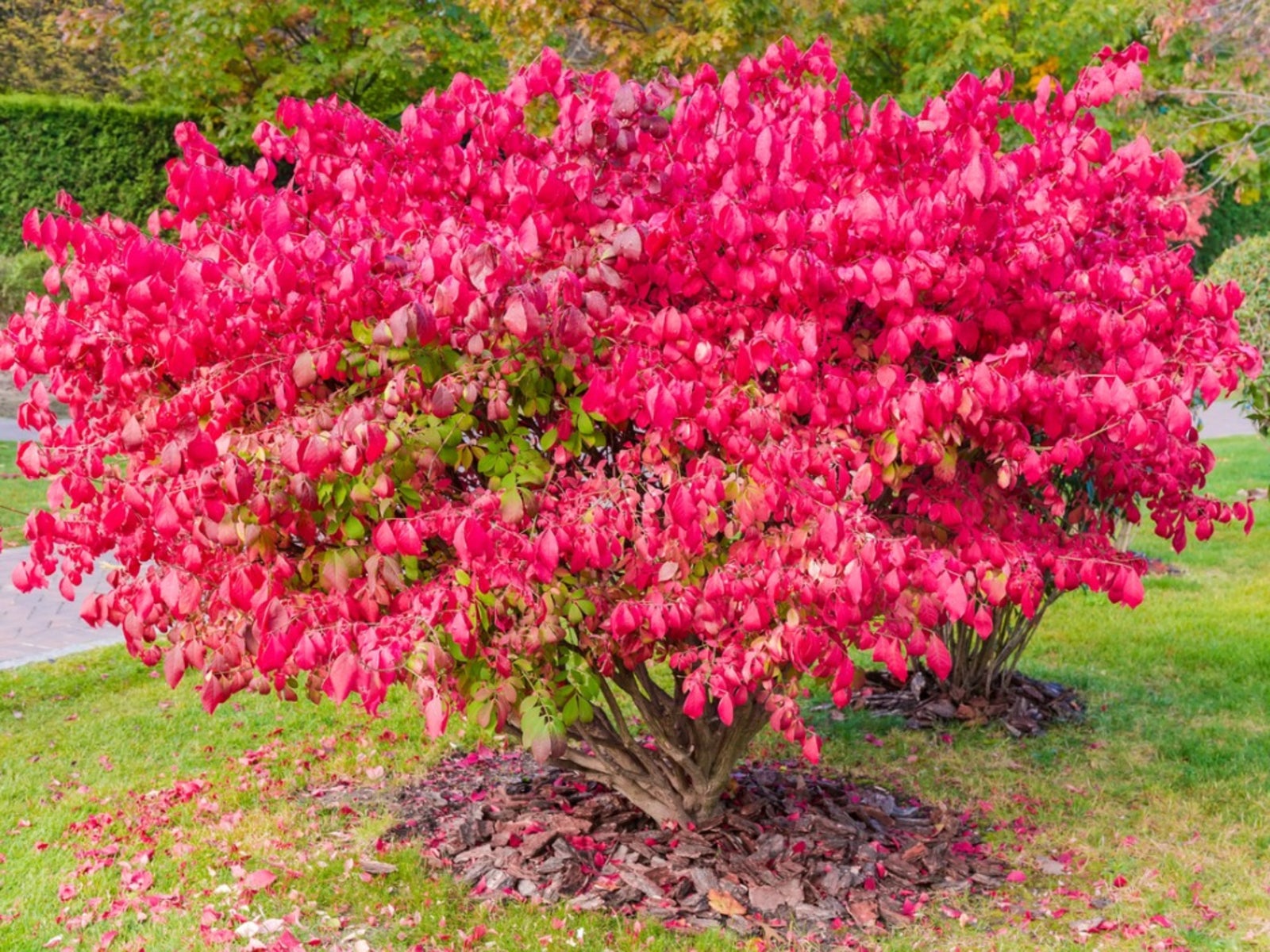Burning Bush Relocation – How To Move A Burning Bush


Sign up for the Gardening Know How newsletter today and receive a free copy of our e-book "How to Grow Delicious Tomatoes".
You are now subscribed
Your newsletter sign-up was successful
Burning bushes are dramatic, often serving as the centerpiece in a garden or yard. Since they’re so striking, it’s hard to give up on them if they can’t stay in the spot they’re in. Luckily, burning bush relocation is reasonably easy and has a pretty high success rate. Keep reading to learn more about burning bush transplanting and when to move burning bushes.
Burning Bush Relocation
Burning bush transplanting is best done in the fall so the roots have all winter to establish before spring growth starts. It can also be done in very early spring before the plant has woken up from dormancy, but the roots will have much less time to grow and establish before energy is diverted to producing leaves and new branches. The best way to go about transplanting a burning bush is to prune the roots in the spring and then do the actual move in the fall. To prune the roots, drive a shovel or spade straight down in a circle around the bush, somewhere between the drip line and the trunk. It should be at least a foot (31 cm.) from the trunk in every direction. This will cut the roots and form the basis of the root ball that you’ll be moving in the fall. By cutting in the spring, you’re giving the bush time to grow some new, shorter roots within this circle. If your burning bush relocation needs to happen right away, you can move it immediately after this step.
How to Move a Burning Bush
On the day of your burning bush transplanting, prepare the new hole ahead of time. It should be just about as deep as the root ball and at least twice as wide. Get a large sheet of burlap to contain the root ball, and a friend to help carry it – as it’s going to be heavy. Dig up the circle you cut in the spring and hoist the bush into the burlap. Move it quickly to its new home. You want it out of the ground as little as possible. Once it’s in place, fill the hole in halfway with soil, then water generously. Once the water has sunk away, fill the rest of the hole in and water again. If you had to cut away a lot of roots, remove some of the branches closest to the ground-- this will take some burden off the plant and allow for easier root growth. Don’t feed your burning bush since fertilizer at this time can damage new roots. Water moderately, keeping the soil moist but not soggy.
Sign up for the Gardening Know How newsletter today and receive a free copy of our e-book "How to Grow Delicious Tomatoes".

The only child of a horticulturist and an English teacher, Liz Baessler was destined to become a gardening editor. She has been with Gardening Know how since 2015, and a Senior Editor since 2020. She holds a BA in English from Brandeis University and an MA in English from the University of Geneva, Switzerland. After years of gardening in containers and community garden plots, she finally has a backyard of her own, which she is systematically filling with vegetables and flowers.